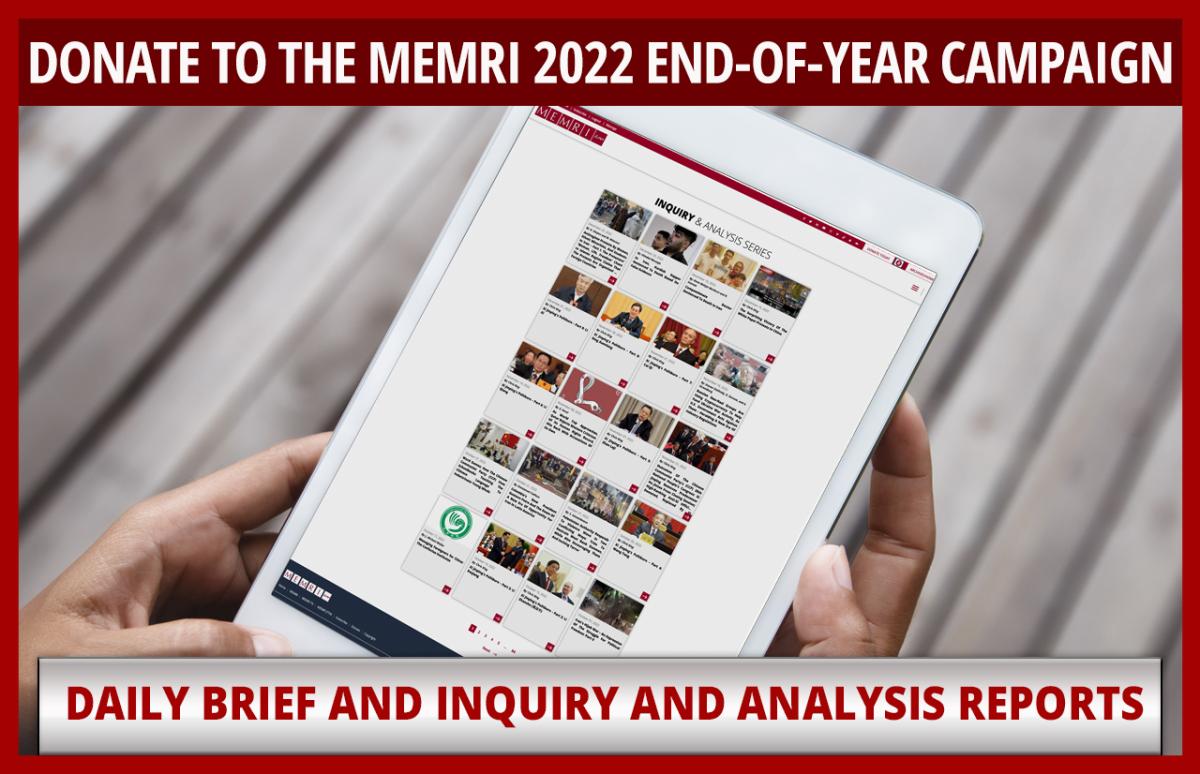The following are selections from the MEMRI Daily Brief series and the MEMRI Inquiry and Analysis series from 2022. They are authored by senior MEMRI scholars and researchers specializing in different countries, regions, and languages – from the Gulf, Arabian Peninsula, Iran, South Asia, and Turkey to Africa, Russia/Ukraine, China, and the West – who are regular contributors to MEMRI projects. These projects include the Jihad and Terrorism Threat Monitor (JTTM), the South Asia Studies Project (SASP), the Russian Media Studies Project (RMSP), the Chinese Media Studies Project (CMSP), and the Domestic Terrorism Threat Monitor (DTTM).
1. Semi-Frozen: The Middle East's Intractable Conflicts
By: Y. Carmon and Alberto M. Fernandez
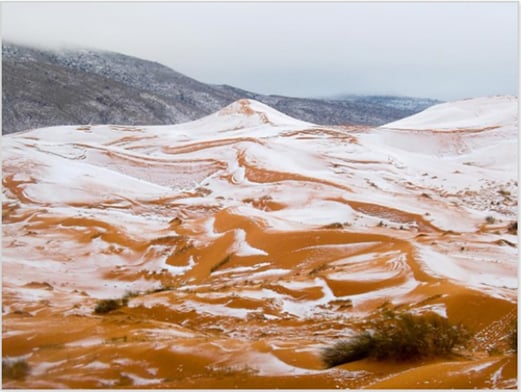
The term "frozen conflict" came into vogue in recent decades to describe a variety of border conflicts between Russia and neighboring countries, often over breakaway regions like Abkhazia or the Donbass. There are also historic conflicts like Kashmir or the Arab-Israeli Conflict that go on for decades, sometimes hot and sometimes cold, that seem to also be "frozen," neither conclusive war nor outright peace, but an uneasy, volatile reality in between. But aside from the old conflict over Palestine, the Middle East seems to have engendered new conflicts in recent decades that are, at least, semi-frozen, lasting for a decade or longer. Often extremely violent and damaging to the future of nations, they also simmer down to situations approaching some type of wary truce, mere political turmoil or low-grade instability only to flare up again.
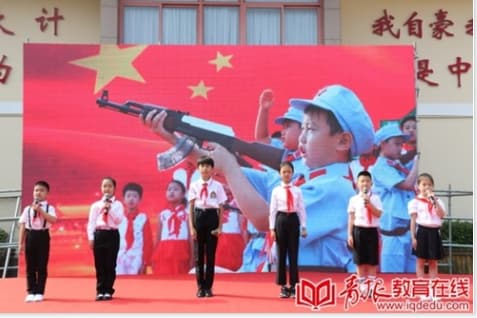
China's indoctrination in state elementary schools (and beyond) is a worthy subject of study, and was recently explored in a three-part MEMRI analytical series looking at Chinese history books. On June 7, 2022, Part I of A Packaged Past, an analytical study of the content of Chinese history textbooks, was released; it focused on the People's Republic of China's (PRC's) treatment of ancient Chinese history. This was followed by the release of Part II on June 8, 2022, which focused on how the books described contemporary Chinese history. Part III offered the nuts and bolt of this particular area of research – translated excerpts from, and commentary to, these deeply ideological texts used by the PRC to shape young minds.
By: Y. Yehoshua

Ahead of U.S. President Biden's Middle East visit, scheduled for mid-July 2022, there has been renewed speculation in the media regarding possible normalization between Saudi Arabia and Israel. Secret contacts between the countries have been ongoing for a while, but Saudi Arabia has so far refrained from joining some of its allies in signing a peace agreement with Israel. It has linked normalization to a resolution to the Palestinian problem based on the 2002 Arab peace initiative.
By: Steven Stalinsky and R. Sosnow
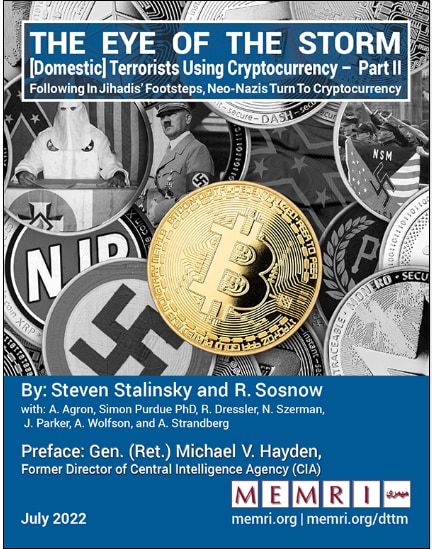
This second major study by MEMRI about the use of cryptocurrency by terrorist organizations, which is over two years in the making, focuses on the use of cryptocurrency by the sector that is now a paramount concern of counterterror and intelligence organizations both in the U.S. and worldwide. The report focuses on its use by racially motivated violent extremists, primarily neo-Nazis and white supremacists. In the U.S., their use of cryptocurrency has increased exponentially due to waves of deplatforming by mainstream financial services, including traditional banking, credit card processing, and platforms relied on by online merchants such as PayPal.
5. Iran Speaks Bluntly – And We Should Listen Carefully
By: A. Savyon and Ze'ev B. Begin

In an op-ed published in Hebrew on April 15, 2022 by the Israeli daily Haaretz, MEMRI Iran Media Studies director Ayelet Savyon and Israeli Knesset Member Ze'ev B. Begin, formerly a Senior Fellow at MEMRI, discussed the recent surge in tough talk by the Iranian leadership , including open mention of Iran's view of nuclear weapons as an essential element of its national security.
By: Anna Mahjar-Barducci
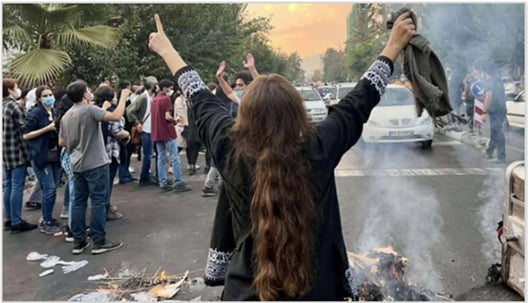
The hijab is a political tool used by Islamic Republic of Iran to keep a strict grip on its population. Quranic sources recommend that women wear modest clothing, but there is no specific mention of the type of garment. Yet the hijab is presented as a religious precept, even though, de facto, it is a political instrument. In a famous speech in the 1950s, Pan-Arabist Egyptian President Gamal Abdel Nasser spoke about his meeting with the Supreme Guide of the Muslim Brotherhood and about the latter's request to enforce the wearing of the hijab.
By: Simon A. Purdue, PhD
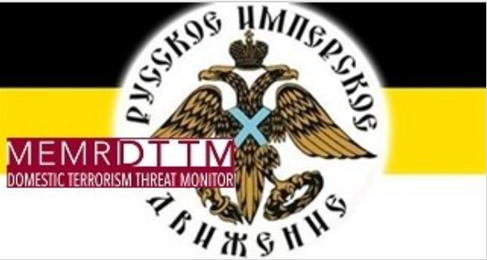
On April 6, 2020, the United States Department of State took the unprecedented step of labelling the Russian Imperial Movement (RIM) a Specially Designated Global Terrorist (SDGT) group and three of the group's senior members – Stanislav Anatolyevich Vorobyev, Denis Valliullovich Gariyev, and Nikolay Nikolayevich Trushchalov – as Specially Designated Global Terrorists. Prior to the ruling, no white supremacist or Racially Motivated Violent Extremist (RMVE) group had been given terrorist designation, and the designation marked the first step in the United States Government's pathway to effectively challenging global white supremacist and neo-Nazi terrorism.
8. On A New Marshall Plan For Ukraine
By: Dr. Vladislav L. Inozemtsev

As Russia's aggression against Ukraine enters its third month, the losses suffered by what was once the most industrially developed former Soviet republic appear to be enormous. The World Bank estimates Ukraine's physical damage at $60 billion, while the Ukrainian government estimates that the country's restoration after the war will cost more than $560 billion, and some Ukrainian politicians suggest that the country will lose a trillion dollars. Even if the last figure seems to be an exaggeration, any of the above-mentioned estimates appear to be catastrophic for a nation that prior to Russia's invasion possessed a $200 billion nominal GDP and lost around ten years of economic growth due to the annexation of Crimea in 2014 and occupation of its eastern regions since 2014-2015.
By: Tufail Ahmad

Since the Islamic Emirate of Afghanistan (the Taliban jihadi organization) seized power in Kabul on August 15, 2021, the regional situation in the wider South Asian region has altered rapidly. There are fears that the Taliban's rise could engender a "regional re-Talibanization" across Afghanistan, Pakistan, Kashmir, and other regions of South Asia, leading to inter-religious conflicts and further attacks on minorities in these countries. The Islamist forces in the region have been emboldened by the Taliban's rise. On December 3, 2021, in neighboring Pakistan a radicalized Muslim mob in the town of Sialkot in Punjab province lynched Priyanatha Kumara, a Sri Lankan non-Muslim working as a factory manager, accusing him of committing blasphemy against Islam's founder Muhammad.
10. Hizbullah And The Israeli-Lebanese Gas Field Dispute
By: Y. Feldner and E. Carmeli
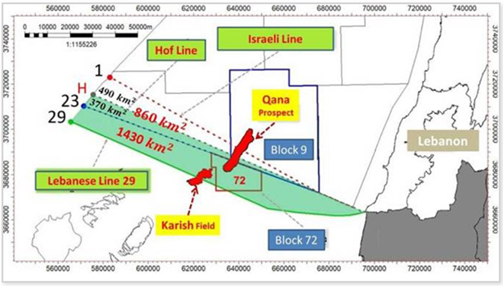
A main element in the current economic and financial crisis in Lebanon is its energy crisis. The Lebanese people have been hit hard by the accelerated devaluation of the Lebanese pound and the fuel shortage; many lost their life savings in the recent collapse of the country's banking system. Thus, the prospect of exploiting the potentially rich offshore natural gas fields appears to be a golden opportunity. However, some of these natural gas fields are also claimed by Israel, and the decade-long U.S.-brokered Israel-Lebanon negotiations on the issue are deadlocked. This is due not only to the dispute over economic interests, but also to Lebanon's political hesitations to engage in negotiations and cooperation with Israel.
11. Deterring The Dragon – What China's Neighbors Can Do To Hem In Its Adventurism And Aggression
By: Heino Klinck

The United States openly recognizes that China is the defining national security challenge of the 21st century based on the Chinese Communist Party's (CCP) stated ambitions and strategies as well as their observable actions whether they be in Hong Kong, the South China Sea, the Senkakus, Ladakh, the air and sea around Taiwan – to name just a few. Beijing's increasingly aggressive actions coupled with its stated strategic goals are troubling and perhaps also foreboding. Prominent among the CCP's goals is the resolution to outstanding sovereignty claims and territorial disputes, including unfounded claims throughout the East and South China Seas and, importantly, the unification of Taiwan, by force if necessary.
By: Chris King

The Chinese Communist Party (CCP) 20th National People's Congress concluded on October 22, 2022. The following are the most significant outcomes of the congress. President Xi Jinping and the six other members of the CCP Central Committee Politburo's Standing Committee are the most powerful individuals in China. The previous Standing Committee members included some affiliates of Xi Jinping's opponents, Jiang Zemin and Hu Jintao (the latter of whom preceded Xi as General Secretary of the CCP).
By: Emmanuel Cadieux

On June 19, 2022, for the first time in its history, Colombia elected a leftist president, Gustavo Petro, and will now have a leftist government. This historic departure from Colombia's traditional right-leaning and U.S.-aligned foreign policy led many countries, among them Iran, to rejoice at the prospect of the opportunities presented by the new president. The following report will review and analyze HispanTV content in the lead-up to and following Petro's election as Colombia's first leftist president.
By: Dr. Nimrod Raphaeli
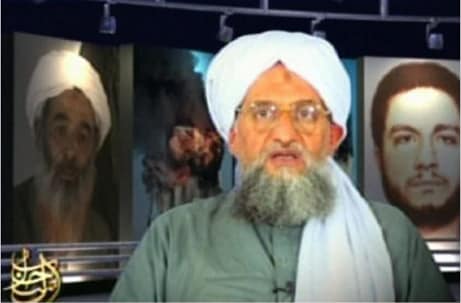
Following the July 31, 2022 killing of Al-Qaeda leader Ayman Al-Zawahiri, we are republishing two archival MEMRI JTTM reports by MEMRI senior analyst Dr. Nimrod Raphaeli. The first report, from 2005, focuses on information found on Al-Zawahiri’s computer after it was seized in an October 2001 raid on Al-Qaeda’s offices in Kabul, which concerned, inter alia, his clandestine activity in Afghanistan. The second report, from 2002, gives information on his background and his rise to prominence.
By: S. Schneidmann

In the recent weeks there have been rumors that Mahmoud Abbas, the 86-year-old president of the Palestinian Authority (PA), is ill, after in early June there were even rumors on social media that he had died. Amid the rumors, it was reported that Abbas has been preparing Hussein Al-Sheikh, the secretary-general of the PLO Executive Committee, to succeed him as president and is about to transfer some of his powers to Al-Sheikh. These rumors about Abbas' precarious health and about preparations for Al-Sheikh to replace him – which were vehemently denied by elements in Fatah and the PLO – rekindled the debate in the Palestinian press as to who would replace Abbas in the event of his departure or death.
By: H. Varulkar
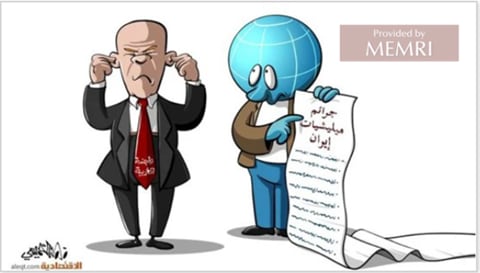
Since the outbreak of the crisis in Ukraine, the UAE and Saudi Arabia have avoided taking a clear stance on the conflict and endorsing the position of the U.S., their major ally, as they might have been expected to do. The official statements issued by the two countries were diplomatically worded and called on both sides in the conflict to resolve their differences through dialogue. This reserved position was also apparent in editorials of these countries' state dailies, which refrained from denouncing Russia and its actions. As the days passed, it became clearer and clearer that the two countries refused to condemn Russia, due to their growing political, military and economic ties with it, and also due to their assessment that Russia is likely to become a prominent power in the new world order that is currently taking shape. Saudi Arabia and the UAE did vote in favor of condemning Russia at the UN General Assembly on March 2, 2022, but the UAE abstained from a similar vote on February 25 at the Security Council, which was seen as an act of refusing to side with the U.S.
17. Uproar In Kuwait Over Religious Endowments Ministry's Intention To Host Lecture Against Feminism
By: C. Meital and H. Varulkar
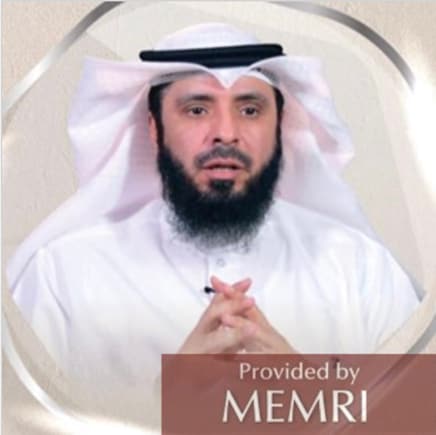
In December 2021, Kuwait's Ministry of Religious Endowments and Islamic Affairs invited the public to attend a lecture on December 23 by Dr. Muhammad Dawi Al-'Osimi, an imam, preacher and a faculty member of the Shari'a Department at Kuwait University, on the topic of "the feminist ideology and the danger it poses to Islamic society." After the title of the lecture aroused public and media criticism, the ministry cancelled the event, and Al-'Osimi therefore delivered the lecture online, on his private YouTube channel, on December 23.
By: A. Smith
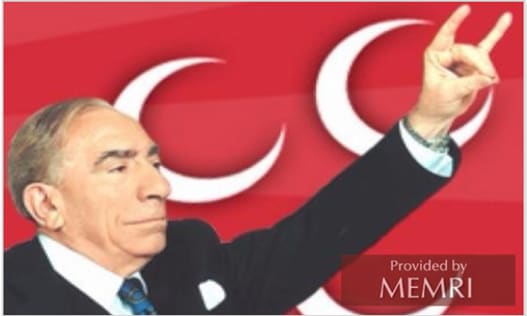
This report will review some of the history and ideology of the Turkish organization Ülkü Ocakları ("Idealist Hearths") also known as the Bozkurtlar ("Grey Wolves") before examining the actions of its leadership and members as recorded in open sources. These activities include: fighting in Syria and Azerbaijan outside of conventional Turkish military forces; praising those killed from official organization outlets; shipments of supplies to armed groups in Syria; and praise from official outlets for Shamil Basayev, a chechen terrorist leader who directed dozens of attacks in Russia that killed hundreds of civilians. The Ülkü Ocakları is an arm of the Milliyetçi Halk Partisi (MHP), which is the smaller of two parties in a coalition governing the country, the other being President Recep Tayyip Erdoğan's AKP.
By: B. Chernitsky

Prominent religious authorities in the Muslim world have lately made numerous statements against homosexuality and against what they called the Western campaigns to promote it. Senior clerics and official religious institutions, such as the Sheikh of Al-Azhar, the Saudi Grand Mufti, Jordan's Iftaa Department and the International Union of Muslim Scholars (IUMS), issued announcements and fatwas on this topic, which claimed that the West is trying to force Muslim societies to accept homosexuality as legitimate. Claiming that homosexuality is in fact a perversion that contravenes human nature and the laws of Islam and of other religions, they urged the West to respect the values of other societies instead of trying to undermine them under the pretext of promoting freedom and human rights. Al-Azhar also published advice for parents "to help them protect their children" from the threat of homosexuality.
By: Matt Schierer

The Wagner Group – a Russian State-backed private military company (PMC) – has mounted a bloody campaign across Mali since December 2021, when the country's ruling military junta contracted its support to counter the growing Salafi-jihadi threat posed by Al-Qaeda's Sahelian affiliate, the Group for the Support of Islam and Muslims (GSIM), and the Islamic State's Sahel Province (ISIS). Alongside Malian forces, Wagner contractors have been implicated in a series of human rights abuses committed under the guise of counterterrorism operations, including the summary execution of approximately 300 civilians in March 2022, an atrocity considered by Human Rights Watch to be the worst in Mali's decade-long armed conflict.
By: A. Savyon

In early January 2022, the Iranian regime marked the second anniversary of the killing of the Islamic Revolutionary Guard Corps (IRGC) Qods Force commander Qassem Soleimani with dozens of ceremonies and speeches across the country. At memorial ceremonies, regime officials glorified Soleimani and his activity to implement the regime's vision of exporting Iran's Islamic Revolution and to expand the political and military influence of the Iranian revolutionary regime in countries across the region. In their speeches, the regime officials reiterated promises of harsh revenge to be exacted against former president Donald Trump and members of his administration, who ordered Soleimani's killing.
By: O. Peri
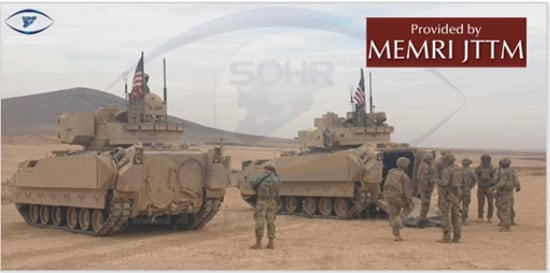
Once every few months, there is an escalation in the threats and actions of the Assad regime and its allies against the U.S. military presence in Syria. Recently, on October 20, 2021, the international coalition base in Al-Tanf, near the meeting point of the Syrian, Jordanian and Iraqi borders, was attacked with drones for the first time. Following this attack, which was attributed to the Allies of Syria Operations Room, an umbrella organization of Iran-backed militias, there was a short lull in the armed operations against the U.S. forces, but in December 2021 the attacks resumed.
23. The Revolt In Iran Is An Ethnic Minorities-Led Uprising
By: Himdad Mustafa

The ongoing protests against the Iranian regime can be defined not only as a women-led uprising, but also an ethnic minorities-led one. In fact, for the ethnic minorities that comprise almost half of Iran's population (e.g., Ahwazi Arabs, Kurds, and Balochis), this is a "revolution" for liberty and basic ethnic and human rights of which they have been deprived not only by the Islamic Republic of Iran, but also by the former Persian regimes (e.g., under the Pahlavi dynasty) for almost a century. For this reason, this is as sensitive topic for the Iranian regime as it is for the Persian diaspora itself.
24. Dance Of The Warlords: Sudan's Ongoing Twilight Struggle
By: Alberto M. Fernandez
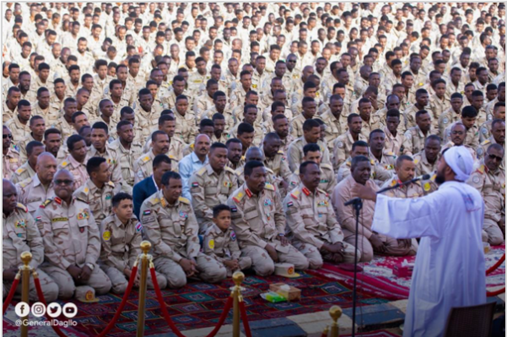
Sudan is a country in deep crisis. Staple food costs have increased 300 percent since last year. It has faced both severe drought and flooding, 7,000,000 school-age children are out of school, and there is a specter of famine in the land. There is an ongoing struggle for power between brave civilians and the military junta, between haves and have-nots – those in the center and at the margins. Every single indicator of progress has declined since the Sudanese military launched a catastrophic coup almost a year ago on October 25, 2021, against the civilian parts of an interim government intended to take the country to democratic elections.
25. The Iran Nuclear Negotiations: Five Shams And One Truth
By: Y. Carmon and M. Reiter

For many years, the West has been trying to prevent – and later slow down – Iran's efforts to become a nuclear power. Everybody knows that Iran wants nuclear weapons; thus, the very idea of negotiations is farcical. Within the big farce that is the JCPOA, there are four specific shams that fully expose it for what it is. The JCPOA was presented as an agreement that would prevent Iran from acquiring nuclear weapons. Yet in reality, the text of the agreement explicitly allows Iran – subject to certain conditions – to acquire the technical know-how and peripheral capabilities needed to develop a nuclear bomb.
26. Putin's Rhetoric And His Battle Against The 'Empire Of Lies'
By: Dr. Olesya Zakharova
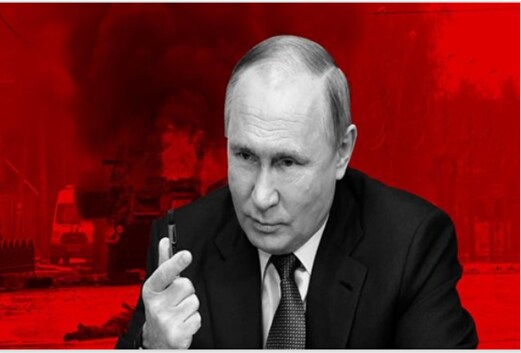
After Russia launched the so-called "Special Military Operation" (SMO) against Ukraine on February 24, many Western media outlets started to write that Russian President Vladimir Putin lives in a reality of his own. It follows that to analyze what is happening in Ukraine, it is important to understand this reality that Putin perceives as reflected in his rhetoric. On more than one occasion, the Russian leadership stated that the SMO's official goal is the protection of the Donbass region from the Ukrainian "Nazi" regime in Kyiv. However, it is becoming obvious that it is neither the safety of Donbass nor the Ukrainian "Nazi regime" that Putin cares about.
By: Katrina Lantos Swett, Y. Carmon

Each year on January 27 the world marks International Holocaust Remembrance Day. Yet, even as we commemorate the liberation of the Auschwitz-Birkenau camp, where nearly 1 million Jews perished, Holocaust denial continues to spread like an epidemic across the internet – including on the San Francisco-based Internet Archive. The Archive describes itself as a "digital library…providing 'Universal Access to All Knowledge,'" but it also serves as an easy-to-access platform for the content of white supremacists, antisemites and Holocaust deniers. Searching the word "Holocaust" on the Internet Archive, for example, yields results with titles like "What Holocaust – 6 million my [expletive]", "A Holocaust Inquiry by Dr David Duke", and "The Jewish Holocaust Is A Jewish HollowHoax" – some of these appearing on the very first page of results.
28. From The Khartoum Resolution To The Abraham Accords: Sudan's Pragmatic Peace With Israel
By: Mohammed Hayder
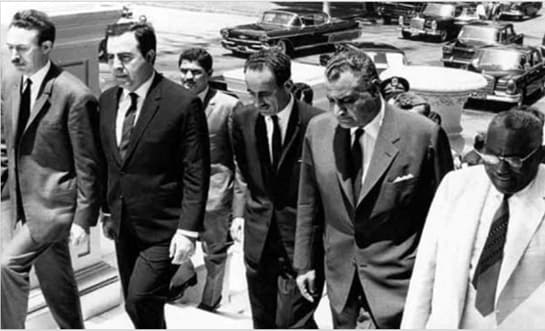
In an act of preemptive strike, Israel, on June 5, 1967, attacked and defeated its Arab neighbor states, and changed the geopolitics of the Middle East region forever. The Naksa (the Arabic word for setback) at the hands of Israel over the duration of just six days was a shameful military and political moment for Arabs. The reactive scenario of Arab governments was immediately on display. Licking their wounds, and fueled by "the complex of fear, the complex of defeat," the humiliated heads of Arab League countries met on August 29, 1967, in a summit that concluded with three no's: "no peace with Israel, no negotiations with Israel, no recognition of Israel."


